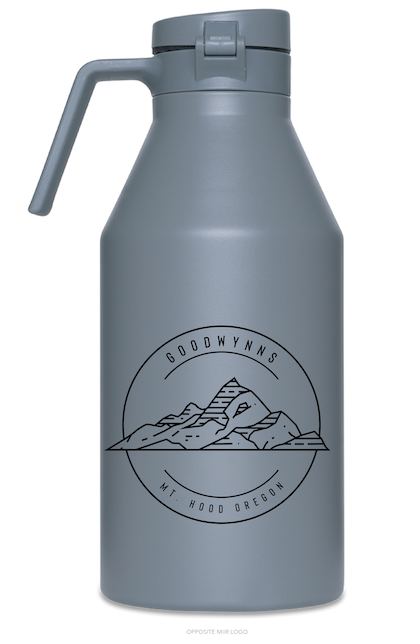Job Purpose:
The Operations Manager will maximize the company’s operating capabilities, oversee the marketing strategies and ensure customer satisfaction. They are responsible for creating and maintaining a budget, collaborating with leaders to execute business strategies in order to maintain customer retention.
Duties & Responsibilities:
-
Employing strategies to ensure the company’s growth
-
Maximizing operating potential to exceed customers’ expectations and company goals.
-
Collaborating with relevant parties to create a budget.
-
Help promote a company culture that encourages top performance and high morale.
-
Develop, implement, and review operational policies and procedures.
-
Identify and address problems and opportunities for the company.
-
Additional duties as assigned.
-
Duties and responsibilities may change, and new ones may be added, at anytime with or without advanced notice.
Skills & Qualifications
-
Bachelor's degree in operations management or related field
-
Experience in management, operations, and leadership.
-
Excellent communication skills, both written and verbal.
-
Proficient ability to manage complex budgets.
Working Conditions:
-
The worker is subject to inside environmental conditions: Protection from weather conditions but not necessarily from temperature changes.
-
The worker is subject to outside environmental conditions: No effective protection from weather.
-
The worker is subject to both environmental conditions: Activities occur inside and outside.
-
The worker is subject to extreme cold: Temperatures typically below 32 degrees for periods of more than one hour. Consideration should be given to the effect of other environmental conditions such as wind and humidity.
-
The worker is subject to extreme heat: Temperatures above 100 degrees for periods of more than one hour. Consideration should be given to the effect of other environmental conditions such as wind and humidity.
-
The worker is subject to noise: There is sufficient noise to cause the worker to shout in order to be heard above the ambient noise level.
-
The worker is subject to vibration: Exposure to oscillating movements of the extremities or whole body.
-
The worker is subject to hazards: Includes a variety of physical conditions, such as proximity to moving mechanical parts, moving vehicles, electrical current, working on scaffolding and high places, exposure to high heat or exposure to chemicals.
-
The worker is subject to atmospheric conditions: One or more of the following conditions that affect the respiratory system of the skin: Fumes, odors, dusts, mists, gases or poor ventilation.
-
The worker is subject to oils: There is air and/or skin exposure to oils and other cutting fluids.
-
The worker is required to wear a respirator.
-
The worker frequently is in close quarters, crawl spaces, shafts, man holes, small enclosed rooms, small sewage and water line pipes, and other areas which could cause claustrophobia.
-
The worker is required to function in narrow aisles or passageways.
-
The worker is exposed to infectious diseases.
-
The worker is required to function around prisoners or mental patients.
-
None: The worker is not substantially exposed to adverse environmental conditions (as in typical office or administrative work).
Physical Requirements:
-
Sedentary work: Exerting up to 10 pounds of force occasionally and/or a negligible amount of force frequently or constantly to lift, carry, push, pull or otherwise move objects, including the human body. Sedentary work involves sitting most of the time. Jobs are sedentary if walking and standing are required only occasionally and all other sedentary criteria are met.
-
Light work: Exerting up to 20 pounds of force occasionally, and/or up to 10 pounds of force frequently, and/or a negligible amount of force constantly to move objects. If the use of arm and/or leg controls requires exertion of forces greater than that for Sedentary Work and the worker sits most of the time, the job is rated for Light Work.
-
Medium work: Exerting up to 50 pounds of force occasionally, and/or up to 20 pounds of force frequently, and/or up to 10 pounds of force constantly to move objects.
-
Heavy work: Exerting up to 100 pounds of force occasionally, and/or up to 50 pounds of force frequently, and/or up to 20 pounds of force constantly to move objects.
-
Very heavy work: Exerting in excess of 100 pounds of force occasionally, and/or in excess of 50 pounds of force frequently, and/or in excess of 20 pounds of force constantly to move objects.
-
Climbing: Ascending or descending ladders, stairs, scaffolding, ramps, poles and the like, using feet and legs and/or hands and arms. Body agility is emphasized. This factor is important if the amount and kind of climbing required exceeds that required for ordinary locomotion.
-
Balancing: Maintaining body equilibrium to prevent falling when walking, standing or crouching on narrow, slippery or erratically moving surfaces. This factor is important if the amount and kind of balancing the amount and kind of balancing exceeds that needed for ordinary locomotion and maintenance of body equilibrium.
-
Stooping: Bending body downward and forward by bending spine at the waist. This factor is important if it occurs to a considerable degree and requires full use of the lower extremities and back muscles
-
Kneeling: Bending legs at knee to come to a rest on knee or knees.
-
Crouching: Bending the body downward and forward by bending leg and spine.
-
Crawling: Moving about on hands and knees or hands and feet.
-
Reaching: Extending hand(s) and arm(s) in any direction.
-
Standing: Remaining upright on the feet, particularly for sustained periods of time
-
Walking: Moving about on foot to accomplish tasks, particularly for long distances or moving from one work site to another
-
Pushing: Using upper extremities to press against something with steady force in order to thrust forward, downward or outward.
-
Pulling: Using upper extremities to exert force in order to draw, drag, haul or tug objects in a sustained motion.
-
Lifting: Raising objects from a lower to a higher position or moving objects horizontally from position to-position. This factor is important if it occurs to a considerable degree and requires the substantial use of the upper extremities and back muscles
-
Fingering: Picking, pinching, typing or otherwise working, primarily with fingers rather than with whole hand or arm as in handling.
-
Grasping: Applying pressure to an object with the fingers and palm
-
Feeling: Perceiving attributes of objects, such as size, shape, temperature or texture by touching with skin, particularly that of fingertips.
-
Talking: Expressing or exchanging ideas by means of the spoken word; those activities where detailed or important spoken instructions must be conveyed to other workers accurately, loudly, or quickly
-
Hearing: Perceiving the nature of sounds at normal speaking levels with or without correction, and having the ability to receive detailed information through oral communication, and making fine discriminations in sound.
-
Repetitive motions: Making substantial movements (motions) of the wrists, hands, and/or fingers.
Direct Reports:
Campground LLC provides equal employment opportunities to all applicants and employees and strictly prohibits any type of harassment or discrimination in regards to race, religion, age, color, sex, disability status, national origin, genetics, sexual orientation, protected veteran status, gender expression, gender identity, or any other characteristic protected under federal, state, and/or local laws.
Consistent with the Americans with Disabilities Act (ADA), it is the policy of Campground LLC to provide reasonable accommodation when requested by a qualified applicant or employee with a disability, unless such accommodation would cause an undue hardship. The policy regarding requests for reasonable accommodation applies to all aspects of employment, including the application process. If reasonable accommodation is needed, please contact [name and/or department, telephone, and e-mail address].
Your employment with Campground LLC is on an at-will basis, meaning either you or the Company can terminate the employment relationship, at any time, for any or no reason, and with or without cause or notice. As an at-will employee, your employment with Campground LLC is not guaranteed for any length of time.
I understand the description of this job and the essential functions, as given above. I also understand that not all of the duties are described above, and that I will perform those above and other related duties as directed by my supervisor and management. I further understand that employment is at-will, and that either I or my employer may terminate the employment relationship at any time.


















